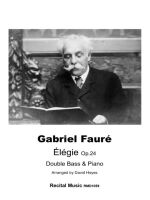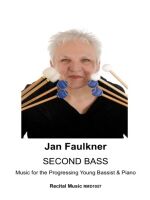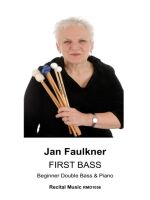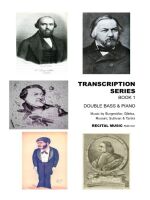The Ragtime Bass Player

Product code:
£6.00
Description
The Ragtime Bass Player is Ad
olf Lotter’s most popular work for double bass and was composed in 1913.
The music has a charm that everyone will enjoy and the four-bar introduction grabs the attention instantly. The opening double bass theme has a jaunty and playful counter-melody played by violins and piccolo which adds a great sense of fun from the outset. The solo melody remains in bass clef throughout making excellent use of the lower orchestral register of the double bass.
The music is lively, charming, and fun and would still be a great addition to any popular concert which wanted something to feature the bassists.
This edition works well with quartet or larger forces and the melodic material is shared between all four players. Bass 1 plays in treble clef but there are few technical challenges but much to enjoy. The Ragtime Bass Player is a light-hearted and fun piece which should appeal to players and audiences alike.
Description
The Ragtime Bass Player is Ad
olf Lotter’s most popular work for double bass and was composed in 1913.
The music has a charm that everyone will enjoy and the four-bar introduction grabs the attention instantly. The opening double bass theme has a jaunty and playful counter-melody played by violins and piccolo which adds a great sense of fun from the outset. The solo melody remains in bass clef throughout making excellent use of the lower orchestral register of the double bass.
The music is lively, charming, and fun and would still be a great addition to any popular concert which wanted something to feature the bassists.
This edition works well with quartet or larger forces and the melodic material is shared between all four players. Bass 1 plays in treble clef but there are few technical challenges but much to enjoy. The Ragtime Bass Player is a light-hearted and fun piece which should appeal to players and audiences alike.



